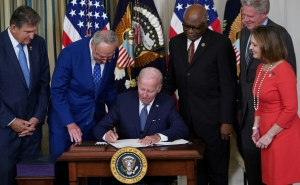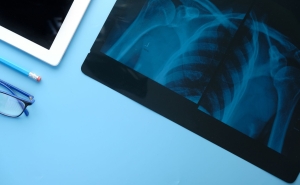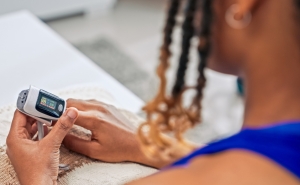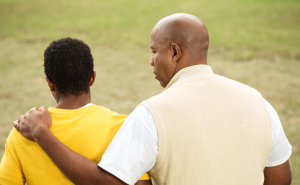Equity in Vaccination: A Plan to Work with Communities of Color Toward COVID-19 Recovery and Beyond
How COVID-19 vaccines could be a starting point for addressing inequity and mending broken systems
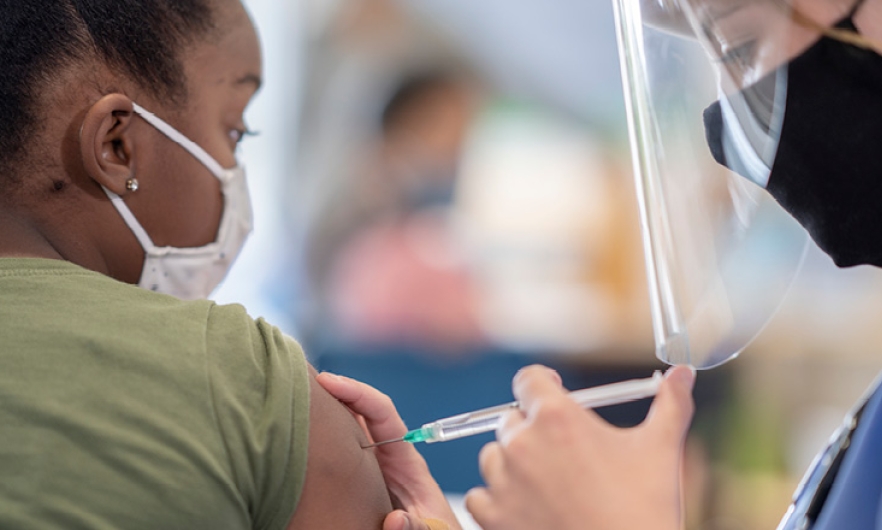
A Q&A WITH MONICA SHOCH-SPANA AND ALEXANDRE WHITE
Recovery from a disaster like the COVID-19 pandemic won’t be easy and cannot be summed up as a “one- or two-shot solution.”
COVID-19 has laid bare brutal existing inequities in the U.S. that cleave along socioeconomic and racial/ethnic lines. True recovery will require mending broken systems and innovation to address generations-old inequity.
Although they are not the entire solution, vaccines do offer a starting point. CommuniVax, a working group on equity in COVID-19 vaccination, released a report, Equity in Vaccination: A Plan to Work with Communities of Color Toward COVID-19 Recovery and Beyond, with actions for state and local officials to implement and support a vaccination campaign that works with Black, Indigenous and People of Color (BIPOC) communities to remedy COVID-19 impacts, repair the inequity-magnifying health burdens, and generate lasting opportunities and benefits in these communities.
The strategies laid out in the report require three critical resources that have historically been in short supply when it comes to investing in the well-being of these communities: time, funding, and interest. By investing in robust vaccination programs, the authors point out, there’s an opportunity to change and improve.
Co-chair of Communivax Monica Schoch-Spana, PhD, MA, of the Center for Health Security, and report contributor and Communivax committee member Alexandre White, PhD, MSc, an associate professor of Sociology at Johns Hopkins, break down some of the report’s key points in this Q&A.
Q&A
Your report cites specific examples of systemic racism that explain why the pandemic has hit communities of color so much harder. Can you talk through a couple of those examples?
The persistent legacies and ongoing effects of racial oppression have deep health effects. Hispanic, Black, and Indigenous individuals end up in the hospital at roughly four times the rate of white people and are almost three times as likely to die from the disease.
While these statistics provide some small insight into the racially stratified effects of the disease, racial segregation, as well as labor force dynamics that bear the markers of racial disparities and discrimination, also affect the capacity of BIPOC individuals to effectively mitigate the risks of exposure to the SARS-CoV-2 virus: The Bureau of Labor Statistics has reported that compared to 30% of the employed White population who are able to work from home if needed, only 16.2% of Hispanic and 19.7% of Black people are employed in positions that allow remote work.
Further, as Black and Hispanic workers are overrepresented in essential work fields such as health care provision and also in the service industry such as restaurant and food service sectors, strategies to effectively mitigate exposure to the disease by staying at home are compromised.
We know that participation in particular economic sectors is conditioned by the histories of slavery, segregation in housing and education, and other legacies of ongoing systemic racism. These myriad factors and others, including inadequate social service provision throughout this pandemic, have contributed to these yawning racial disparities in COVID-19 cases and deaths in the United States.
How can vaccines help in the short term?
Obviously, the significant protection conveyed through widespread vaccine coverage will bring much-needed relief by interrupting viral transmission, reducing health burdens, and hastening a return to familiar home, work, and school routines.
However, if we solely prioritize the rapid delivery of vaccines, we will only succeed in providing protection to those most easily accessible. If we focus our vaccine delivery efforts on speed and equity, then we will prioritize not only the rapid delivery of vaccines but reach those most historically deprived and isolated from health care access.
This is absolutely critical to an effective COVID-19 vaccine campaign and can only be achieved through the collaboration, cooperation, and leadership of those communities historically underserved by public health and health care services.
How can vaccines help in the long term?
COVID-19 will have long-lasting physical, psychological, and financial effects, especially in BIPOC communities. Because of this, the COVID-19 vaccination campaign cannot be viewed as a final step in returning to “normalcy.” Instead, it needs to be seen as a step toward a more complete recovery that can, and should, include meaningful social change.
CommuniVax sees the equitable delivery of the SARS-CoV-2 vaccines as a gateway to the more foundational work of building partnerships and programs with communities and people who have been disenfranchised from the decision-making processes in public health and health care provision.
Too often, BIPOC communities are either seen by health authorities as the docile recipients of health interventions, left out of research design and leadership roles, or, at worst, seen as communities to be experimented on. This is evidenced by numerous historical examples including, most infamously, the Tuskegee Study of Untreated Syphilis in the Negro Male.
The COVID-19 vaccine rollout must challenge these legacies and place equity at the center of its objectives. We hope that this will create a sea change in how public health is practiced in the U.S., and lead to significant investments in equitable public health action. These investments could include developing a new workforce of community-based workers to help with testing, tracing, vaccination, etc., to stay on post-pandemic, as well as increased funding for community health centers, to name but a few examples.
Among your recommendations are to include “those with lived experiences” of health inequity. What might this look like and how can these experts help inform policies and programs?
To develop a genuine vaccination partnership with BIPOC individuals and organizations, health authorities must begin by listening to what people have to say about COVID-19 vaccines and by not having preformed ideas about what priorities should be or preconceived notions of how certain groups will perceive the vaccine.
BIPOC communities who have been hurt tragically and disproportionately by this pandemic require a thoughtfully planned forum—one that conveys a genuine tone of respectful interaction—in which to share experiences, impart observations, vent frustrations, express hopes, air skepticism, and relay questions.
This is about more than just a one-sided discussion where community members are dictated to by health actors without space for local and community leadership. Health actors must dedicate and invest real time to listen and let community members be the guides, not the audience. Acting immediately and at strategic milestones during and after COVID-19 vaccination efforts, jurisdiction leaders should be prepared to hear, sit with, and act on community feedback—for example, what we are getting right and what can be improved—and then circle back to assess whether community members feel that their input has made a difference.
If people feel they are heard and that their voices actually make a difference, trust will grow. If input is not acknowledged or is ignored, then mistrust will persist and potentially worsen.
Are there any existing partnerships/models that could serve as examples?
In our report, we highlight some terrific initiatives that embody the principles that we wish to highlight in promoting equity through the COVID-19 response and vaccine delivery:the Mission Economic Development Agency (MEDA), the Health Equity Zones Initiative, and the Northwest Arkansas Regional Collaborative for Pacific Islander and Latinx Communities. Each represents a model for collaborative and equitable relationships between local communities and health agencies. You can find detailed summaries of their work in our report.
What were some notable concerns BIPOC and communities raised and that this report hopes to help policymakers and elected officials address?
While some of the most publicly visible issues that have been widely discussed in the news have related to vaccine confidence and safety, which we address, we also wish to highlight broader concerns of vaccine accessibility for hard-to-reach communities, as well as the importance of members of BIPOC communities being represented, listened to, and advocated for in the design and delivery of COVID-19 response strategies.
Alexandre White, PhD, MSc, is an assistant professor in the departments of Sociology at Johns Hopkins University and the History of Medicine at the Johns Hopkins School of Medicine. He is also the associate director of the Center for Medical Humanities and Social Medicine.
Monica Schoch-Spana, PhD, MA, is a senior scholar at the Center for Health Security and a senior scientist in Environmental Health and Engineering.

